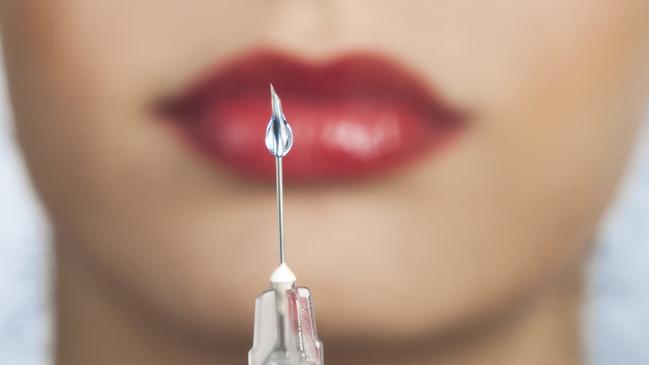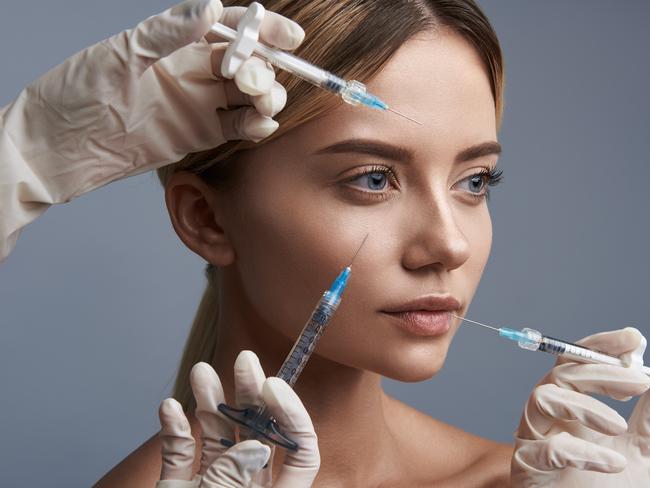Updated advice issued for cosmetic injectables industry
Health authorities are seeking to ‘clarify’ previous information provided to the cosmetic injectables industry that sparked panic and fears hundreds of businesses were operating illegally.

Concerns that nurse-led cosmetics clinics providing anti-wrinkle and filler injectables were operating outside the regulations in Queensland have been alleviated after a months-long review.
Queensland Health says in industry guidance updated on Tuesday that the clinics will be allowed to operate even if a prescribing doctor is not physically onsite.
The department’s new guidance clarifying the rules and regulations surrounding cosmetic injectables follows the release of a previous document that caused widespread confusion and fears the majority of the state’s industry was operating illegally.
In December 2024, Queensland Health published an information document saying Schedule 4 medications, which are restricted drugs requiring a prescription and include cosmetic anti-wrinkle and filler, could “only be delivered to a place where the authorised buyer, such as a medical practitioner or a nurse practitioner, is physically practising from”.
The document went on to say “doctors and nurse practitioners cannot buy stock for a place that they do not practise from, which includes locations for which telehealth is provided”.
In Australia, most cosmetic injectables clinics are owned and operated by nurses. They then form business arrangements with a prescriber, which is often a large telehealth company that provides speedy access to video-prescribing via a doctor and access to the medication.
The December document caused mass confusion, with further wording suggesting that nurse-led clinics could not operate legally in Queensland.

Following that advice, crisis meetings were held, threats of legal challenges brewed, and department officials met with industry insiders as everyone involved scrambled to understand if they were compliant.
Since then, the Queensland government has also been lobbied heavily and was sent a petition with hundreds of signatures from nurses asking it to reconsider the advice.
This latest document no longer includes the advice stating a prescriber needs to be physically onsite.
Despite the changes to wording, Queensland Health maintains it has not changed the fundamental meaning of its advice, but rather suggests the original advice was misinterpreted due to differences between legal and industry language.
In a previous interview, John Delaney, who is a co-founder of one of the nation’s largest cosmetic injectable telehealth businesses, spoke about the previous advice and confirmed he was in consultation with authorities over it.
“They brought out a fact sheet seeking to clarify their interpretations (of the law),” Dr Delaney previously told The Australian.
“It ran contrary to years’ worth of legitimate practice within the industry, and it also potentially highlighted some areas where we can improve. And so we’re in conversation with them, and made a submission to the minister, and the minister is going to make a recommendation.
“We don’t think it would be wise to harm an industry deliberately when there is no evidence of patient safety concerns, so we’re in conversation with them about that.”

As part of the updated advice released on Tuesday, Queensland Health released a multi-page question and answer sheet to further explain the rules, and will also hold consultations with the industry. There is now a special section of the information sheet related specifically to nurse-led clinics.
“In these circumstances, only dispensed medicines (those that have been dispensed by a doctor or pharmacist) can be held at the clinic for the purpose of being administered in accordance with the dispensing label,” the new document reads.
“The RN at the nurse-led cosmetic injectables clinic will be authorised to possess the dispensed S4 cosmetic injectable medicine for the purpose of administering the medicine to an individual client in accordance with the dispensing label.”
The Australian previously reported concerns about the adequacy of some telehealth consultations. A lack of minimum training requirements for those working in the industry had also led to a slip in standards that could put patients at serious risk of harm.
Dr Delaney told The Australian he rejected suggestions of widespread wrongdoing or poor safety practices but agreed regulators should provide more clarity around several issues.
One issue was whether it was legal for cosmetic injectables, such as Botox or filler, to be consigned to a clinic under the name of one doctor but then authorised for use on a patient by a completely different doctor.
Dr Delaney said it was a “challenge” the industry needed guidance on, but that the practice was common.
“But is that illegal? I don’t know. That’s a call for the regulators.”
Now, it seems Queensland Health is answering, and the answer is “no”. The new document says doctors and nurse practitioners are not allowed to supply cosmetic clinics with injectables where they will not have exclusive custody and control over the stock. Furthermore, any stock must be assigned to a patient.
“Including where cosmetic injectables are supplied ‘on consignment’,” the new advice states.
The Australian understands authorities in Queensland had grown increasingly concerned about a practice where some clinics were administering injectables without authorisation and with no prescriber having consulted with the client or prescribed the medication. This latest advice is designed to stamp that out and puts those engaged in the unlawful practice on notice.
A Queensland Health spokeswoman told The Australian that the updated advice was the result of industry consultation and sought to balance supporting locally run businesses while prioritising public safety.
“Cosmetic injectable treatments are prescription-only substances that can cause serious harm if used improperly,” the spokeswoman said.
“That is why we are working with staff from the industry and business owners to ensure they meet their obligations under the current legislation.
“Through extensive consultation, Queensland Health understands that many of the instances of noncompliance in the industry are not necessarily deliberate. We will continue to work closely with clinics, wholesalers and prescribers to ensure they have the support and guidance to achieve safe service models.”
According to the Therapeutic Goods Administration, since 2016 there had been 91 incidents reported to it nationally involving eye disorders as a result of cosmetic injectables gone wrong. Of those, at least six patients had been left permanently blind.
Meanwhile, the medical boards have been meeting to develop new guidelines for the cosmetic injectables industry which are due to be released imminently.





To join the conversation, please log in. Don't have an account? Register
Join the conversation, you are commenting as Logout